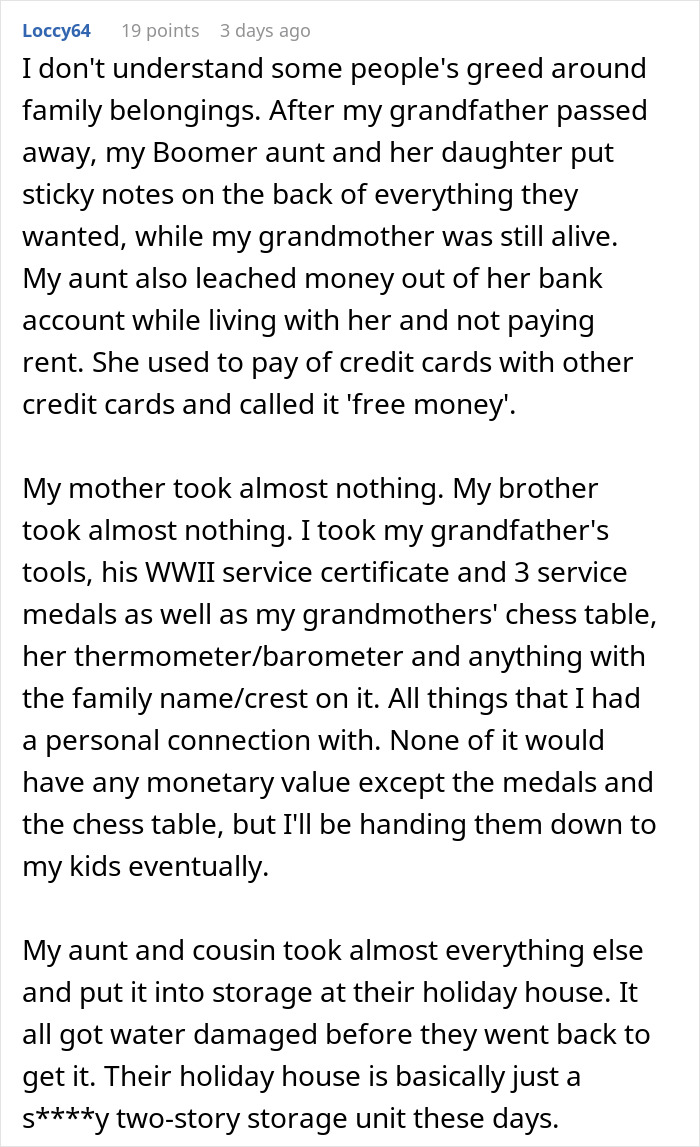Few things are as emotionally draining as dealing with a parent who behaves more like a child.
This became all too clear to one Redditor as he helped his mother clear out his late grandmother’s house. She eagerly claimed all the so-called “valuables”—coins, furs, silverware—convinced they’d bring her a hefty profit. Meanwhile, she dismissed the “old, ugly” furniture, letting her son take it as an afterthought.
But when she discovered it was worth far more than her prized haul, it set off years of guilt-tripping and resentment that couldn’t be undone.
After his grandmother’s passing, the man’s mother kept all the “valuables” for herself and let him have the furniture

Image credits: Getty Images/Unsplash (not the actual photo)
But when she realized the furniture was worth far more than her prized haul, she was furious
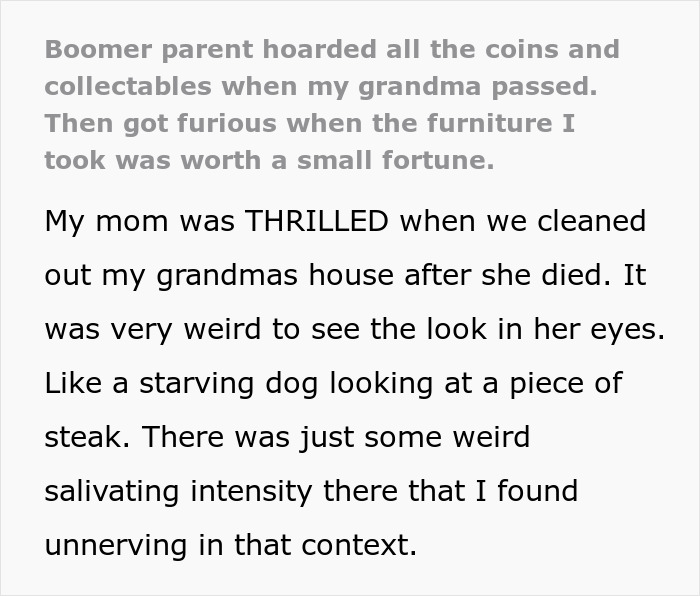

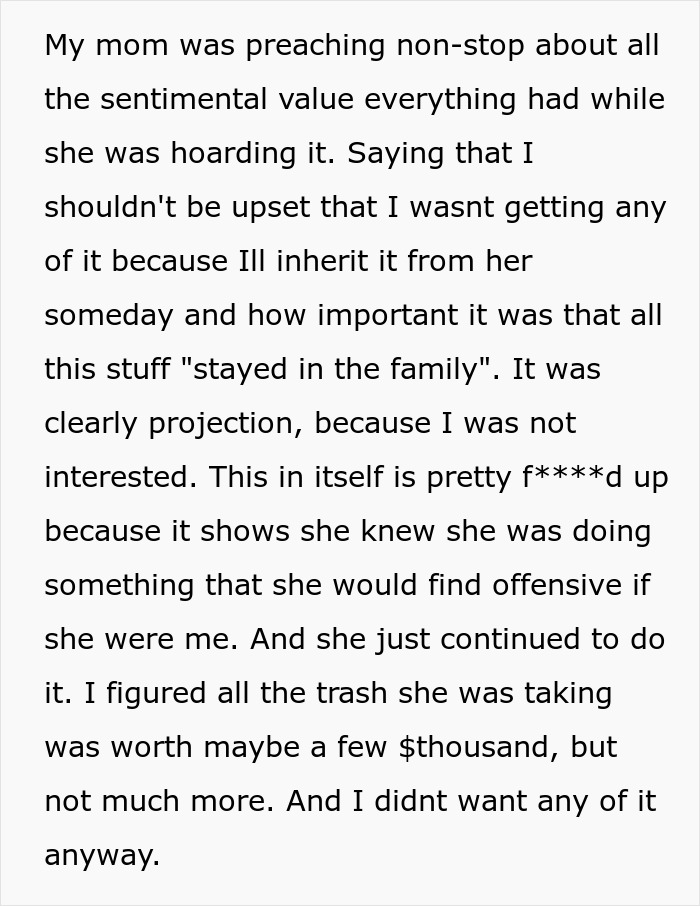
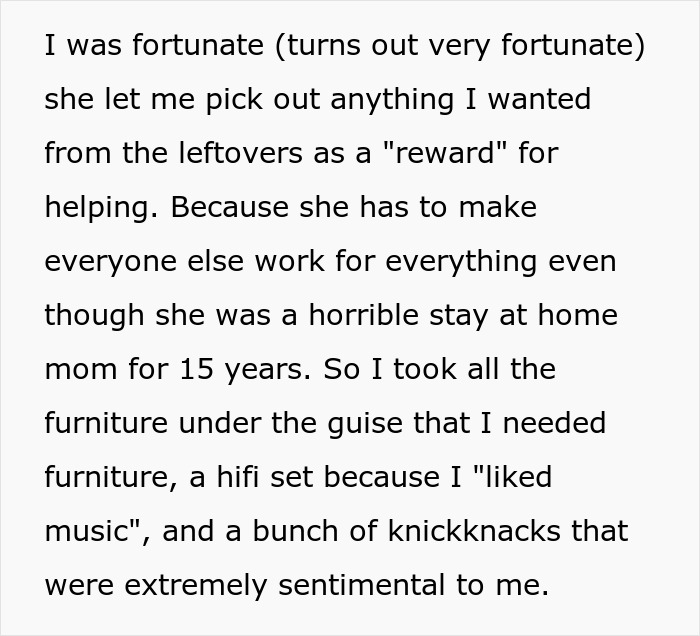
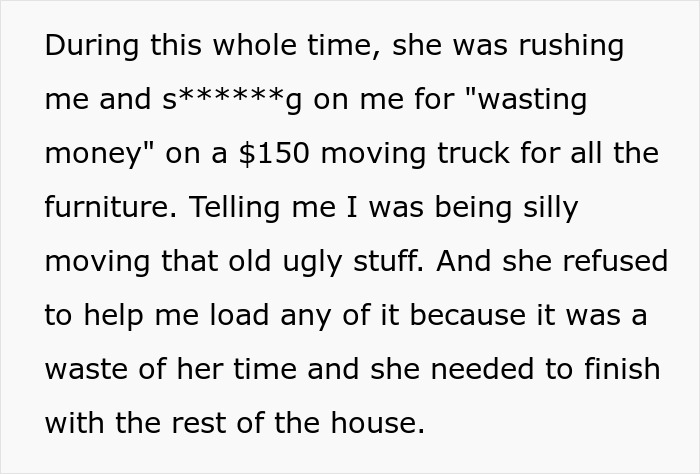


Image credits: Kateryna Hliznitsova/Unsplash (not the actual photo)

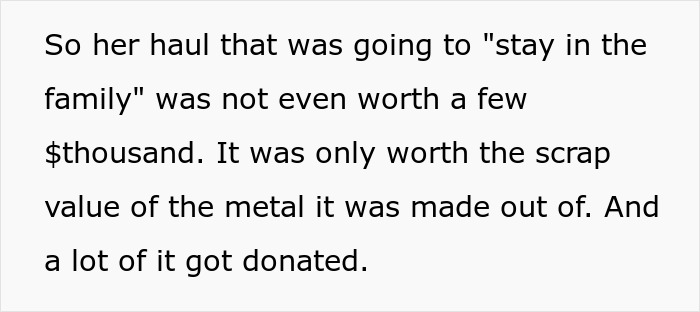




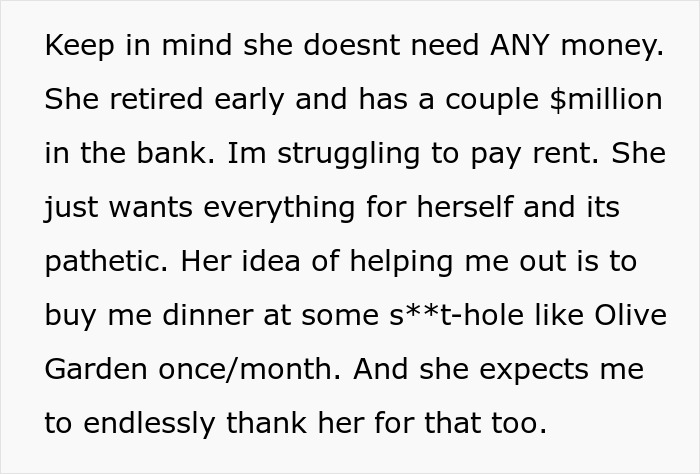


Image credits: PhatJohnT
Emotionally immature parents have a serious impact on their children
In the context of what happened, the author’s decision to go no contact with his mother isn’t surprising. Growing up alongside an emotionally immature parent—and continuing to deal with them as an adult—can be incredibly challenging.
Therapist Ashlyn Graff, MS, LMHC, defines emotional immaturity as “an inability or unwillingness to cope with or regulate emotions in healthy ways.” It often presents itself in two distinct patterns:
- A lack of emotional regulation, which might involve angry outbursts or crying at inappropriate times. Parents like this may also rely on their kids to act as emotional support or take on adult responsibilities.
- Emotional neglect or avoidance, where parents deny or ignore their feelings altogether.
Both types of emotional immaturity can have long-lasting effects on children, impacting their mental health and development into adulthood. For example, children of emotionally immature parents often normalize ignoring their own needs and feelings, leading to low self-esteem. Adult children of rejecting parents may also struggle with emotional intimacy, healthy relationships, and maintaining boundaries.

Image credits: Andrej Lišakov/Unsplash (not the actual photo)
However, as Graff points out, it’s possible to heal and break free from these patterns. “Just because you had an emotionally immature mother or father doesn’t mean you can’t have emotional maturity!” she says. “You can create your own beautiful adult life and respond to life’s complexity in emotionally mature ways. Your experiences in childhood do not reflect your future.”
Graff recommends starting small, such as practicing self-care. “Self-care is individualized to what works for you,” she explains. “It may include meeting your essential health and hygiene needs, exercising, spending time with loved ones, and following your passion. When you learn to prioritize yourself, you no longer give in to the narrative that you are unimportant.”
If emotional support was absent in childhood, it can be found elsewhere—with trusted friends or romantic partners. “Curating meaningful relationships can be immensely healing for individuals with trauma,” she says. “In these intimate relationships (whether platonic or romantic), we can learn what it means to be safe and experience deeper feelings in a healthy capacity.”
Finally, don’t hesitate to seek professional help to process your experiences. “Talk therapy, DBT, and EMDR therapy can help you gain insight into how your childhood affected you and help you to break free from patterns that no longer serve you,” says Graff.
Readers were happy to learn that the author cut ties with his mother







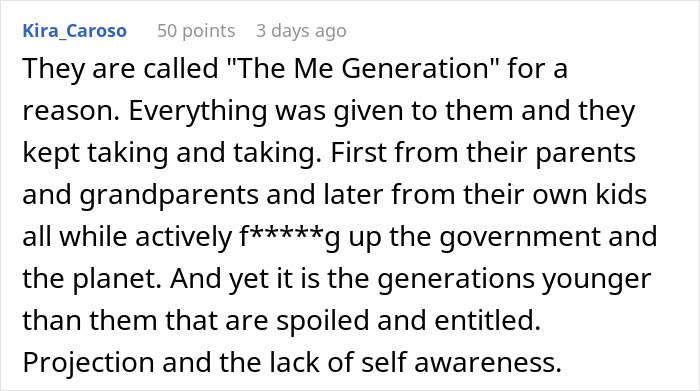








Many shared similar experiences in response



